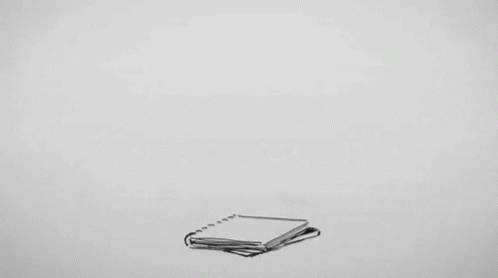Living Unhurried: My Takeaways from "The Ruthless Elimination of Hurry"

I have an embarrassingly large stack of books in my "to read" pile. I truly enjoy reading, but I often cannot seem to prioritize sitting down and reading (and finishing!) a book. Can you relate?

However, there occasionally is a book that I come across that I cannot put down. I breeze through it, either due to the subject matter or the author's writing style. In the case of The Ruthless Elimination of Hurry, John Mark Comer accomplished both. I was intrigued by the title after seeing a mentor of mine read and recommend it (shout-out to Paxson!), and while I was often deeply convicted of my own hurriedness while reading, I finished the book feeling encouraged in how I might slow down and live intentionally in my walk with Jesus. I echo one of the accolades in the front cover that the book was "refreshing, revitalizing, and a shock to the system". Here are my thoughts on John Mark Comer's The Ruthless Elimination of Hurry.
Comer opens the book by reflecting on his personal experience with burnout when he was a megachurch pastor. Feeling overwhelmed and spiritually drained, he sought guidance from his mentor, John Ortberg. Ortberg shared advice he received from his own mentor, Dallas Willard:
“You must ruthlessly eliminate hurry from your life.”
Comer argues that hurry is the greatest barrier to a meaningful spiritual life and presents practical strategies for embracing a slower, Jesus-centered lifestyle.
Comer explores how hurry has become a defining feature of modern life, driving people to work faster, think quicker, and interact more superficially. He cites studies linking constant busyness with elevated stress levels and poor well-being. In contrast, Jesus lived with an unhurried, intentional rhythm, offering a model for how we might live more peacefully by adopting His pace.
Technology, Comer notes, has fueled both productivity and overwork. While innovations like the clock, light bulb, and internet have increased efficiency, they have also exacerbated a culture of constant busyness. This busyness, often worn as a badge of honor, comes at a significant spiritual and emotional cost. Comer introduces the concept of “hurry sickness”—a condition marked by restlessness, impatience, and an inability to slow down. This relentless pace, he argues, blocks true peace and fulfillment.
Drawing from both psychological and theological perspectives, Comer highlights the damaging effects of hurry on the human soul. Citing Corrie ten Boom’s insight,
“If the devil cannot make us bad, he will make us busy"
Comer warns that busyness can be as destructive as sin. He identifies common symptoms of hurry sickness, including irritability, emotional numbness, and escapism through excessive screen time or work. A hurried soul, Comer asserts, becomes disconnected from God, others, and itself. True spiritual and emotional well-being, therefore, requires intentionally slowing down and embracing a more present way of living.
To cultivate a slower rhythm, Comer focuses on four key spiritual disciplines: Silence & Solitude, Sabbath, Simplicity, and Slowing. These practices serve as antidotes to hurry sickness and help individuals reclaim peace and spiritual depth.
Comer reminds us that Jesus often withdrew to quiet places to pray, prioritizing solitude as a vital part of His spiritual life. In today’s world, distractions like smartphones and social media make it difficult to engage in meaningful reflection. Comer suggests setting aside 5–10 minutes of quiet each day, in a distraction-free space, to connect with God.
Sabbath, Comer explains, is more than just a day off; it’s a sacred time for worship, rest, and enjoying life’s blessings. Rooted in the biblical example of God resting on the seventh day, the Sabbath is a divine invitation to step away from the demands of work and busyness. Comer shares how his family observes the Sabbath by engaging in joyful activities like sharing meals, taking walks, and unplugging from screens. This rhythm of rest provides renewed peace and spiritual refreshment.
Comer also advocates for simplicity as a spiritual practice. Inspired by Jesus, Comer emphasizes that true joy lies not in accumulating possessions, but in focusing on God and meaningful relationships. Practical steps to embrace simplicity include decluttering to create a peaceful environment, reducing screen time, and prioritizing relationships over material goods. Simplicity fosters contentment and spiritual clarity.
Comer presents slowing as an intentional practice to combat the relentless pace of modern life. He offers practical tips to slow down, such as driving in the slow lane and walking instead of rushing. Single-tasking, rather than multi-tasking, is another way to resist the pressure of constant activity. Comer again encourages reducing screen time, which often perpetuates hurry sickness. These methods help foster a more mindful and present approach to life.
Lastly, Comer introduces the idea of a “Rule of Life,” inspired by monastic traditions like the Rule of Saint Benedict. A Rule of Life is a structured way to order one’s life around spiritual practices such as silence, prayer, rest, and relationships. By creating a personalized schedule that prioritizes these practices, individuals can resist the chaos of modern life and cultivate space for spiritual growth and deeper connections.
Overall, I was equally convicted and encouraged by Comer's book, and would encourage anyone to give it a read. Some of his recommendations near the end of the book are things I already practice (observing a restful Sabbath, screen time and notification limits, and prioritizing relationships or experiences over things). I drive the speed limit (apologies to all the New York drivers behind me!), and I have been preaching the gospel of single-tasking because multi-tasking is a myth that must be busted 😆
There were many concepts Comer presented that I am now considering adding to my daily practice. I want to begin the discipline of regular silence and solitude, as well as simplicity in my possessions. Do we (read: I) really need all of those shirts in my closet? Or all of those shoes? As someone with over ten unique pairs of Converse, it's probably a rhetorical question. And while I most likely won't be trading in my iPhone for a flip phone anytime soon, I can keep it away during my morning quiet time. Or even turn it off for an entire day. Take a digital vacation, and as the piano man Billy Joel sang, "forget about life for a while."
In a world where we constantly hear the anthem of harder, better, faster, stronger, I would encourage you to practice slowing down, and embrace a more intentional, Jesus-centered way of living. Practice the Sabbath. Sit in and embrace silence. Simplify. And choose to cultivate a deep spiritual life by finding life, rest, joy, and peace in God's presence.
For more thoughts on rest and slowing down, check out one of my previous blog posts below, and consider subscribing to my email list if you haven't already!

